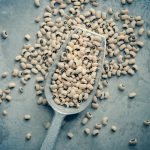Happy Life, Happy Science
While many people are enjoying what feels like “life as usual” following the global COVID-19 pandemic, there is one truth we cannot deny: life has irrevocably altered. The technology enabling virtual communication and digital media has advanced extraordinarily over the past several years, during which people relied extensively on technology and the internet to connect with one another in place of in-person interaction.
Because of the absence of communication, mentorship, and support, in addition to research pressure, graduate students and young scientists may feel particularly affected by the enhanced distancing and loneliness, which may contribute to them feeling overwhelmed and anxious about their life and future. Mental health for early-career plant scientists can never be overemphasized. A happy life is crucial for plant biologists to develop plant science happily. Actively engaging with community becomes an important part of not only maintaining your mental health but supporting your scientific development.
Take time away to fuel your interests. It is necessary to take time away from work for personal time. The time that is taken away from the research won’t slow your progress. Take some time to read other people’s stories and decide what you can do for yourself. The Plantae blog shares many stories of personal growth that can help encourage you to overcome challenges, reinforce your dream and career, and inspire you to follow your heart. Each story is a star, enlightening your pace along the study journey.
Follow Plant Science Research Weekly. For most junior graduate students, reading research articles is a common struggle. Without background knowledge and adequate benchwork experience, it is overwhelming to follow the complicated experiments in a high-impact journal. The research work summary in the Plant Science Research Weekly series (now under “Research Insights” on Plantae) is a favorable resource for graduate students. Every short summary highlights the paper structure, main conclusions, and research significance in a reader-friendly and time-saving format to help you gain a clear understanding of scientific papers and develop confidence in navigating full articles.
Find your community. Events and conferences are more than just a place to present research: they’re a place to connect with others who share your interests and passion. The hope in each presentation and the passion of every speaker will uplift your pride as a plant scientist. A foundational element of these meetings is the networking and social events, and ASPB’s Plant Biology meeting hosts a closing party, which easily becomes the most exciting and relaxing moment every year. Music and science break the boundary and ice, and every attendee is involved in this great plant science family.
While classes and communication might still largely take place virtually and online, taking time for yourself, investing in yourself to develop a desired skill, and adventuring to a community event may all help you connect with a happy, balanced life in academia.
______________________________________________
About the Author:
Diwen Wang is a PhD candidate in the Department of Botany and Plant Pathology at Purdue University, and a 2023 Plantae Fellow. She is now focusing on the interaction between plant and plant pathogen. You can find her on Twitter at @Diwen_w.



